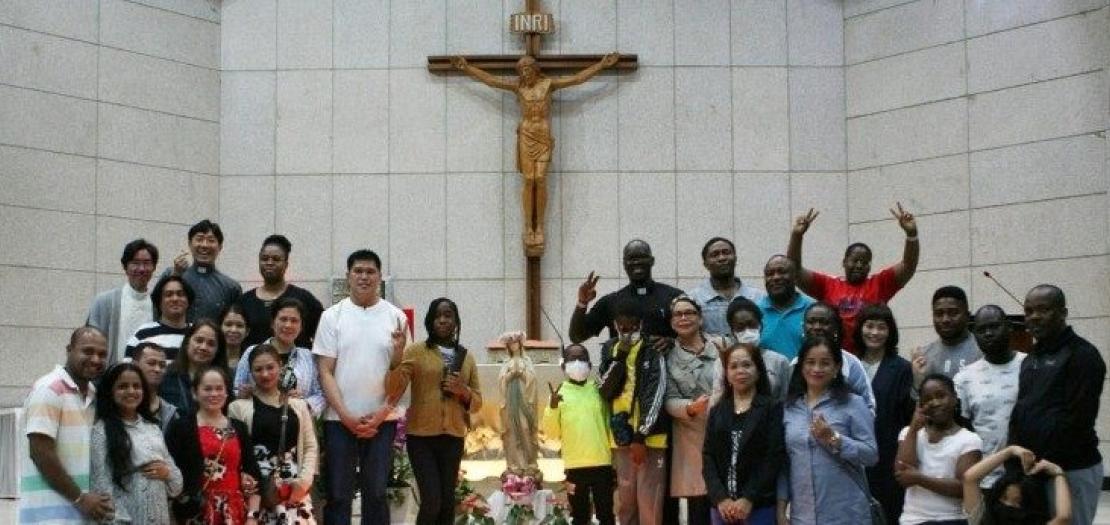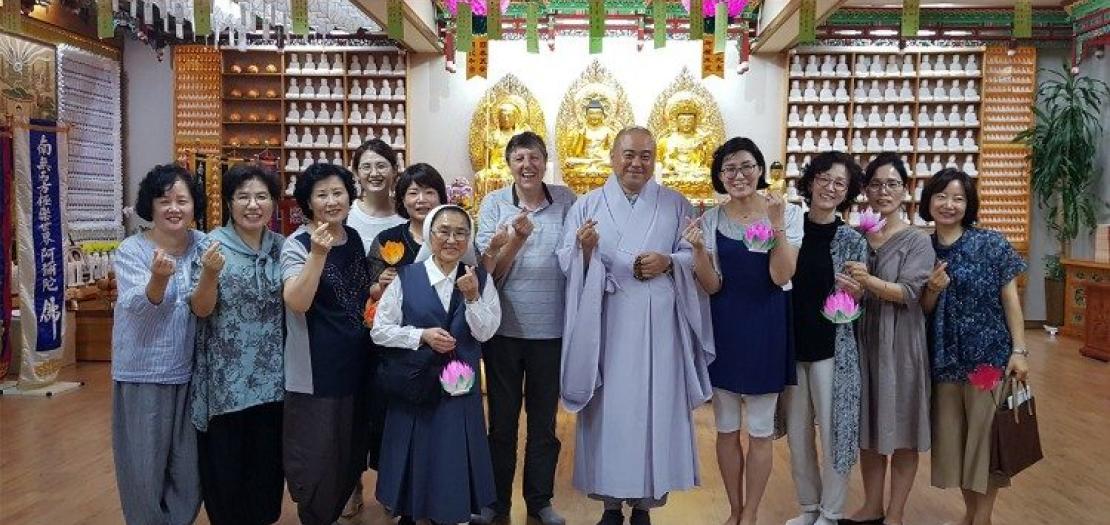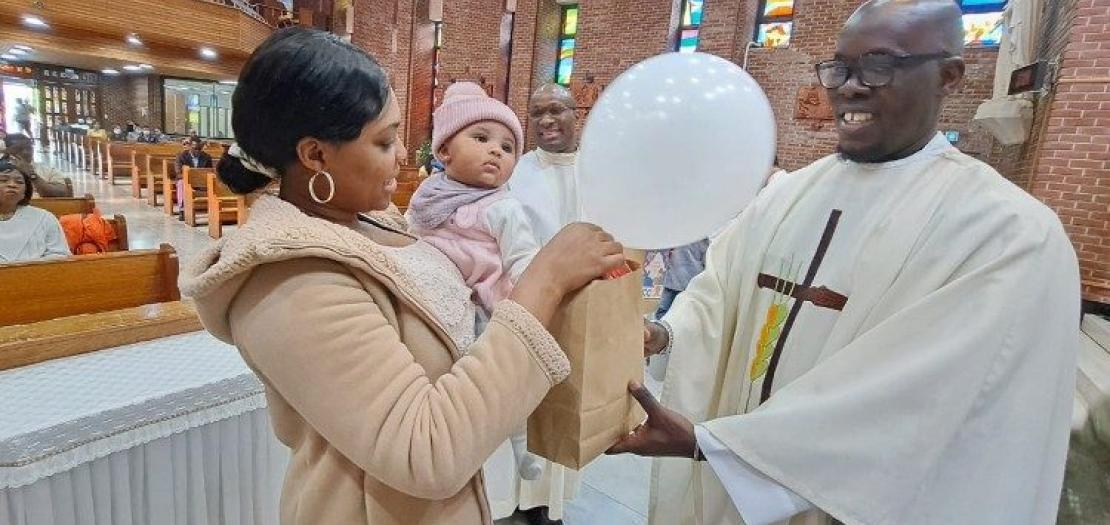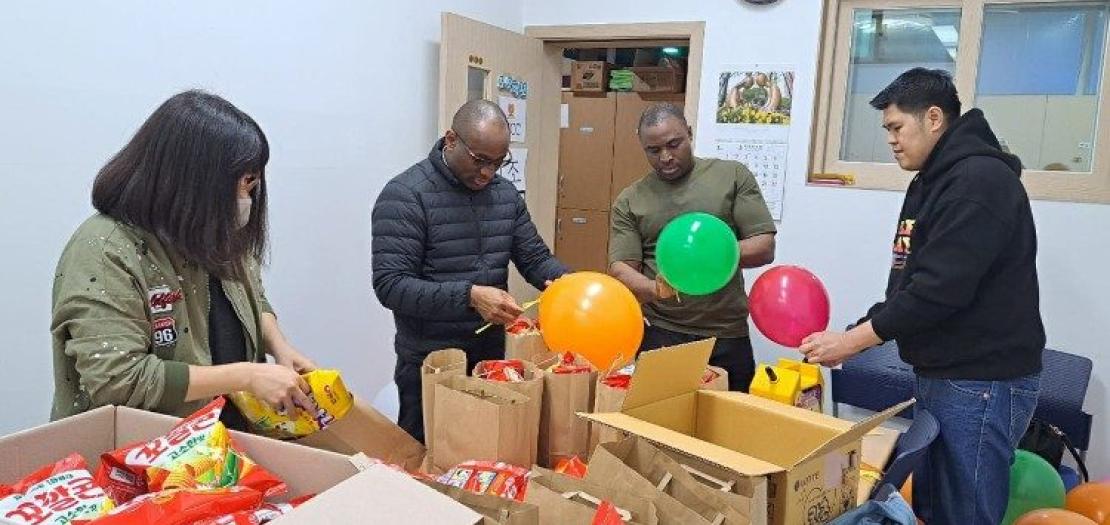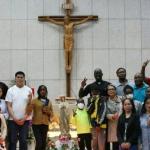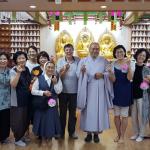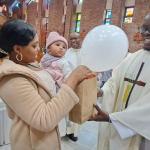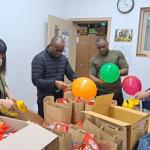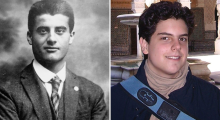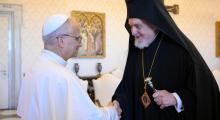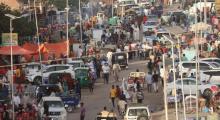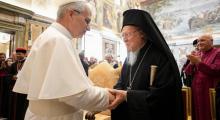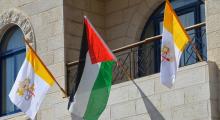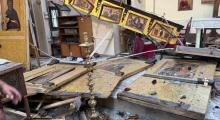Issued by the Catholic Center for Studies and Media - Jordan. Editor-in-chief Fr. Rif'at Bader - موقع أبونا abouna.org
Fr. Diego Cazzolato, who has been a Consolata Missionary in South Korea for over three decades, has shared his mission to illustrate the message Pope Francis delivered ten years ago. The Pope made an Apostolic Journey to South Korea from August 13 to 18, 2014 for the 6th Asian Youth Day.
In an interview with Vatican News, Fr. Diego expressed his hopes for internal reconciliation and universal fraternity by fostering interreligious dialogue and support for the poor and migrants from the Philippines and Nigeria.
Pope Francis’ consolation and compassion
Speaking from Daejeon, Fr. Diego recalled his opportunity to meet the Pope in 2014, and his gratitude for the Pope’s message that sought to restore peace and hope to the South Korean population, which was still reeling from a recent tragic event. A ferry carrying hundreds of young students sank in April 2014 for unknown reasons on the way to a nearby island.
He recalled the Pope’s compassion and consolation of several parents of the children as an act which touched many Korean hearts, some of whom decided to become Catholics as a result. “It was a providential visit,” said the missionary.
False hope for reconciliation
However, in Fr. Diego’s memory of the event remains a bittersweet sensation, as hopes for reconciliation and reunification of the two Koreas has continued without success.
“Unfortunately,” he said, “the hope towards reconciliation was completely destroyed not only by those who govern North Korea, but also their own government, which stands against reconciliation more than seeking for peace. The relationship has reached its lowest point in the last fifty years.”
“The new poor” among migrant groups
The Italian-born missionary described how the government’s modernization plans, on the occasion of the 1988 Olympics and the 2002 World Cup, hindered the development of human and spiritual closeness with Koreans living in poverty in the outskirts of Seoul.
Fr. Diego used the term “the new poor” to identify the migrants who come from all over the world in search for economic stability.
The majority come from the Philippines and other Southeast Asian counties, such as Vietnam, Timor-Leste, Thailand and Cambodia, as well as a large group of Nigerians and some Latin Americans.
Pope’s return to Southeast Asia will encourage dialogue
One year ago in Mongolia, Pope Francis’ “presence in the peripheries fostered enthusiasm,” said Fr. Diego. He believes this sentiment and the Pope’s push for dialogue will be vital during his upcoming Apostolic Journey to Southeast Asia, given the cultural differences between Christianity and Islam.
Fr. Diego recalled his own dedication to “coming into contact with leaders of other religions in Daejeon, and to build peaceful relationships with all in search for the truth.”
WYD 2027 seeks to combat youth demoralization
The missionary priest did not deny that future generations increasingly seek truth outside religious spaces.
In a technologically advancing world, many young people still find securing economic stability difficult, a problem which even the Christian community struggles to rectify despite all its efforts.
Thus, Fr. Diego said he looks with hope to the 2027 World Youth Day in South Korea, saying that strong initiatives are needed to restore the joy of youth to young people.


